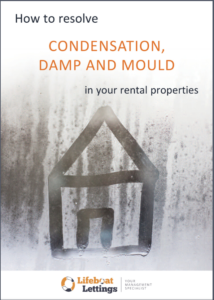
If you’re a self-managing landlord, regular property inspections should be one of your top priorities. They play a vital role in protecting your rental investment, avoiding expensive repair costs, and keeping your property legally compliant.
At Lifeboat Lettings, we know how crucial this is. That’s why we carry out two inspections per year for our managed buy-to-let properties, and four inspections per year for all HMOs we manage. This proactive approach allows us to spot issues early, ensure tenant safety, and maintain the long-term value of our landlords’ properties.
In this article, we share the best practices for rental property inspections, including how often to carry them out, what to look for, and how they could save you serious money.
How Often Should Landlords Inspect Rental Properties?
As a rule of thumb, rental properties should be inspected at least every six months. However, for HMO landlords or those with older properties, quarterly inspections are ideal.
At Lifeboat Lettings, we recommend:
- Twice-yearly inspections for standard single-let rentals
- Quarterly inspections (every 3 months) for HMOs and high-traffic homes
- More frequent checks if issues like damp, mould, or damage have previously occurred
Set a recurring schedule and make inspections part of your overall property maintenance plan.
Benefits of Regular Property Inspections
1. Save on Costly Repairs
Early detection prevents expensive problems. Catching small leaks, damaged sealants, or worn-out parts means you won’t be surprised by emergency repair bills.
At Lifeboat Lettings, we’ve saved landlords thousands by spotting issues before they escalate—just one of the ways we offer real value to our managed clients.
2. Stay Legally Compliant
New legislation like Awaab’s Law places stronger obligations on landlords to deal with issues like damp and mould swiftly. Failing to meet these standards could lead to fines of up to £30,000.
Our inspection strategy ensures we remain ahead of regulations and protect our landlords from legal risks.
3. Protect Long-Term Property Value
Neglect can reduce your property’s resale or rental value by 5–15%. Regular inspections help preserve condition, spot deterioration, and ensure ongoing appeal to future tenants.
4. Maintain Strong Landlord-Tenant Relationships
Inspections offer an opportunity to catch up with tenants, identify maintenance needs early, and reinforce mutual respect. Happy tenants = fewer voids.
Inspection Tips for Self-Managing Landlords
If you’re managing your own portfolio, here’s our practical checklist:
- Schedule inspections twice a year (quarterly for HMOs)
- Provide at least 24 hours’ notice in writing
- Use a structured checklist (include safety, condition, hygiene, damp, smoke alarms)
- Take time-stamped photos for your records
- Follow up with a written summary or maintenance plan
- Keep inspection reports for your compliance file
Too Busy to Manage Inspections? We’ve Got You Covered.
Managing inspections is time-consuming—but for our landlords, it’s all taken care of.
With Lifeboat Lettings, you’ll benefit from:
- Scheduled inspections
- Real-time maintenance tracking
- Peace of mind that your investment is protected
- Full compliance with legal obligations
- Clear communication and photographic evidence
Our structured inspection process is just one part of our fully managed lettings service, available for landlords in Kent, including Ashford, Folkestone, Dover, Maidstone, Medway and surrounding areas.
Let’s Chat – No Pressure
Want to stop worrying about inspections, regulations, and repairs?
Reach out to Lifeboat Lettings today and find out how we can help manage your property with ease.
Get in Touch Today to discuss your property plans and ensure you stay ahead of these changes.




